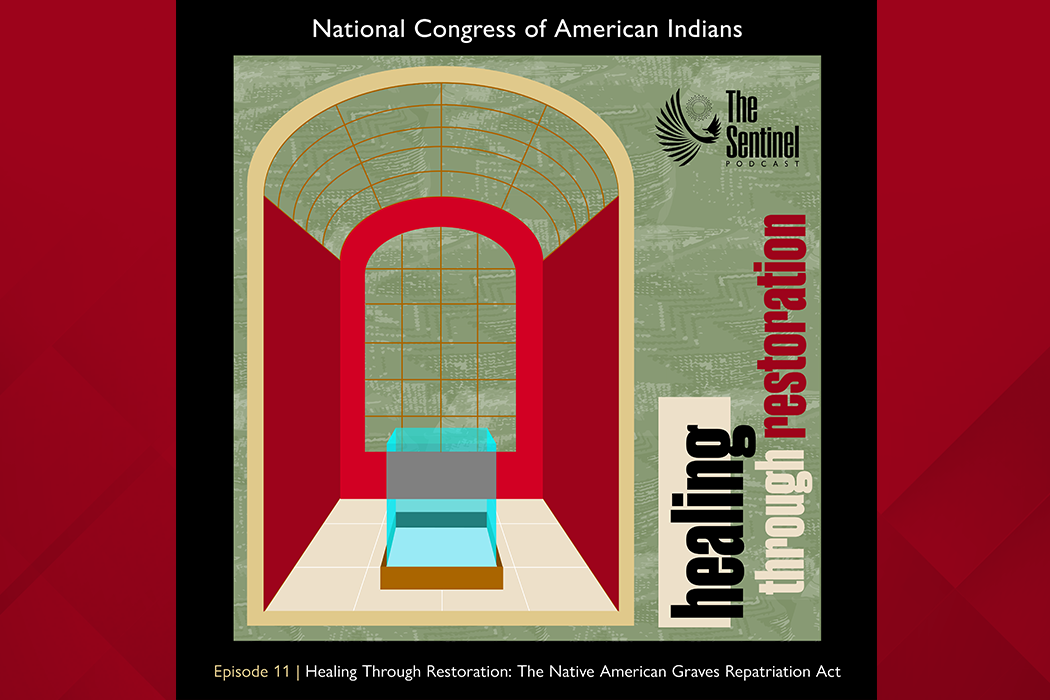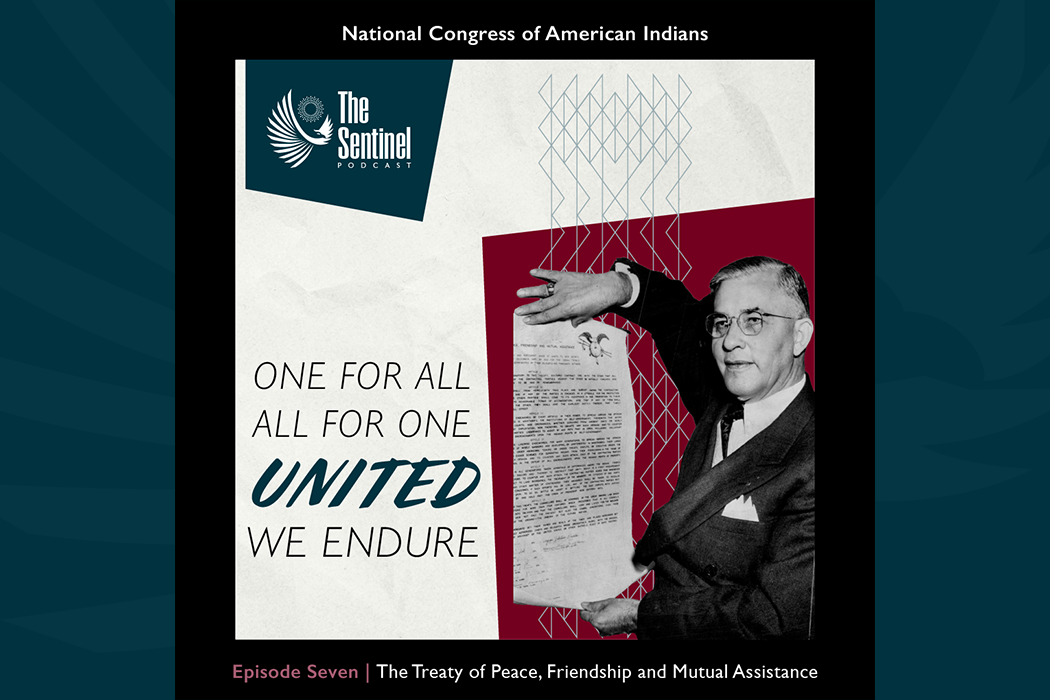
The Native American Graves Repatriation Act (NAGPRA) addresses the treatment and repatriation of cultural items, objects of cultural patrimony, sacred objects, and human remains. Passed into law in 1990 as a result of decades of NCAI advocacy, this legislation goes a long way towards recognizing and respecting the sacred, religious, and cultural rights of American Indian and Alaska Native people. It was considered long overdue at the time of its passage and has faced significant hurdles since then.
One of the key provisions of NAGPRA establishes requirements that federal agencies and any institutions that receive federal funding, make account of any human remains, funerary objects, sacred objects, and objects of cultural patrimony that they have in their possession. The law states that they must be then repatriated to the appropriate Tribal Nations, to be cared for, and to be honored according to tribal religious practices.
Of critical importance is that NAGPRA also includes steps for consultation and collaboration between federal agencies, museums, and Tribal representatives and communities. One of its goals is to foster communication based on respect for culture and cultural sensitivity. This process is meant to bring healing and reconciliation to Native communities. Likewise, it calls for both museums and cultural institutions to address and take stock of the historical trauma associated with the exploitation and desecration of sacred objects, burial sites, and human remains that were stolen for their own benefit.
Delving back into the NCAI archival records, we learn that the organization was a key advocate for repatriation legislation long before NAGPRA was adopted. For example, In 1986 at the Annual Convention in Phoenix, Arizona, NCAI condemned the Department of Interior policy on human remains and sacred objects that they had developed without any tribal consultation or input. Organization leaders called on Congress to create tribally focused legislation, and to “hold hearings to allow the Indian Community to present its views and recommendations.”
Then, immediately prior to the passage of NAGPRA, NCAI adopted a Resolution at the 1990 Executive Council Winter Session calling upon Congress to adopt repatriation legislation because, “the sanctity of the dead for American Indians and Alaska Natives has never been respected by the dominant, non-Indian society as evidenced by the untold thousands of deceased Native Americans that have been dug up from their final resting places and because respect for the dead is a basic human right that is fundamental to all cultures, societies and religions…”.
Working in coalition with its partners such as the Native American Rights Fund and Association on American Indian Affairs, NCAI continued its unwavering advocacy until NAGPRA was finally passed into law in November 1990. Unfortunately, despite its historic significance, NAGPRA has faced major challenges in its implementation. Many claim that the original legislation does not go far enough to address past wrongdoings, nor does it take into account the challenges of the repatriation process both in terms of legal and ethical considerations. The quest for successful implementation of NAGPRA has dragged on for 34 years.
In recent months, however, there have been some promising developments. In an April 2023 press release, NCAI commended the ongoing bipartisan effort of the U.S. Senate that was underway at the time for ensuring that, “Native American ancestral remains and cultural items are returned to their rightful owners as an essential first step towards acknowledging the historic and ongoing wrongs inflicted upon the American Indian and Alaska Native community.” In August 2023, the National Park Service announced $3.4 million in grants to 16 Tribal Nations and 28 museums to assist in the consultation, documentation, and repatriation of ancestral remains and cultural items. This is the largest amount since the grant program began.
As time goes on, NCAI will continue to advocate for the complete implementation of NAGPRA and repatriation of ancestral remains, and sacred and cultural objects, so that wrongdoings inflicted upon American Indian and Alaska Native communities are recognized and healing can begin.
About the Sentinel Blog
Drawing on NCAI’s rich digital and physical archival collections, it is our hope that you will return each month to learn more about the organization’s 80 years of advocacy for Indian Country and, as a result, will also remain informed about what is happening at NCAI today.


